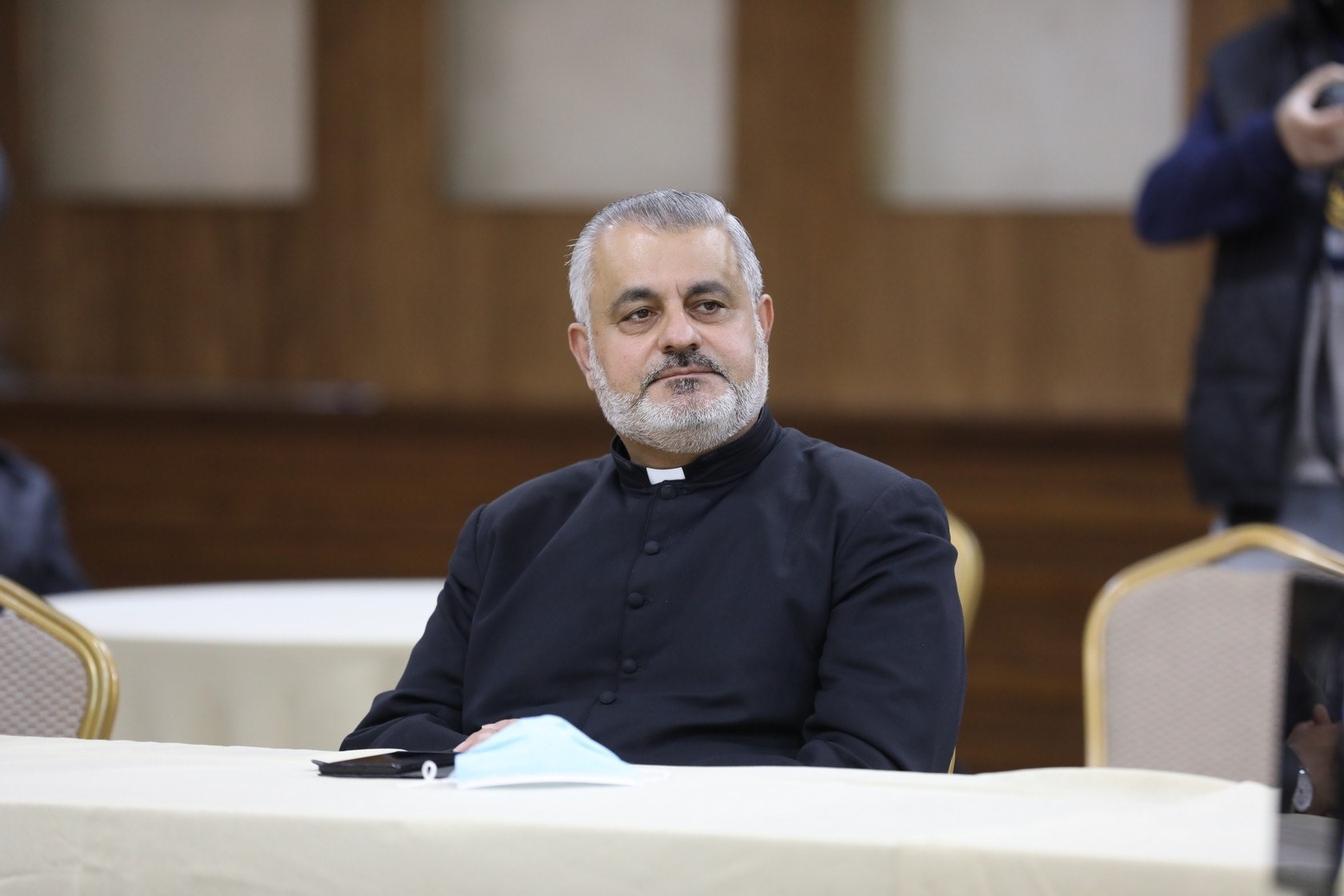Fr Rif'at Badr: Jordan stands in solidarity with Gaza, but can no longer welcome Palestinian refugees
A member of the Latin Patriarchate of Jerusalem, the founder of the Catholic the Abouna news reiterated the positions of the Jordanian monarchy that "The Palestinians have the right to their own state." After the blast at Gaza's al-Ahli hospital, protesters took to the streets. For the Jordanian cleric, the resolution of the conflict can only pass through negotiations.
Amman (AsiaNews) – For the past two days, the Jordanian capital of Amman has been the scene of protests in support of the Palestinian people following a blast at the al-Ahli al-Arabi Hospital, a medical facility run by the Anglican Church, that killed hundreds of people who had taken refuge in the compound to protect themselves from Israeli attacks.
Although early evidence from freely accessible data and images seem to confirm the Israeli version that it was the malfunction of an Islamic Jihad rocket that hit the hospital, Hamas' accusations against the Jewish state have gone around the world, and risk spreading the war to Lebanon and Iran.
Already in many Arab countries, people have taken to the streets to protest against their own governments for their lack of support for Palestine.
In Amman riots broke out, but were "well contained by the police" and "were not directed at the Jordanian monarchy,” said Fr Rif’at Badr, a member of the Latin Patriarchate of Jerusalem. From Tla' Al Ali parish, he is the founder of abouna.org, a bilingual (Arabic-English) Catholic news website.
“The demonstrations were held for the Palestinians, not against the Jordanian state, and the police were present to guarantee the free right to demonstrate," he told AsiaNews. Meanwhile, the roads leading to the Israeli and US embassies remain closed to prevent the situation from escalating.
"In Jordan many citizens are of Palestinian origin and there is no discrimination against them. As priests, we too feel a special love for every place and every stone of the Holy Land because most of the religious of the Latin Patriarchate of Jerusalem studied in Beit Jala," a parish just north of Bethlehem where the population is mostly Christian, the priest said.
"But we also feel a great concern for the Palestinian cause, because we have seen so many years of suffering and the main issues remain unresolved," said Fr. Rif'at.
"These are a few essential points: the occupation of Jerusalem, the settlements in the West Bank, the sharing of water, the return of refugees, the presence of the wall in the occupied territories and the establishment of borders. Touching on just one of these points causes great political complications.”
Yet an eventual resolution of the conflict cannot ignore any of these. And precisely because of the close relations that bind Jordanians to Palestine, "the victims of the hospital explosion are 'martyrs' for us," Fr Rif'at added.
“There are few Christians in Gaza but they are well integrated in society. They serve the people thanks to the presence of several churches and hospitals. But the conditions in which they have lived so far are inhumane.”
Recent bombing in Gaza has killed more than 3,000 Palestinians, while the others are in urgent need of humanitarian aid, particularly food and water.
Following the news of the attack on the hospital, the meeting between President Biden, who was in Israel, and King Abdullah II was cancelled. Instead, the Jordanian monarch flew to Cairo to discuss with Egyptian President Abdel Fattah al-Sisi “means to stop the Israeli aggression on Gaza,” reads a statement posted on King Abdullah’s official website.
Despite its strong ties with the Holy Land, the Hashemite kingdom is not prepared to take in Palestinian refugees as it has in the past.
“There are refugees of 35 different nationalities in Jordan. In recent years, we have accepted refugees from Syria and Iraq because, thank God, our monarchy is stable, but like Egypt we don't want the Palestinians to move, we want them to have their own stable and independent state in the future,” Abouna Rif’at explained, reiterating the government's words.
“Palestinian displacement is a red line for Jordan," Deputy Prime Minister and Foreign Minister Ayman Safadi said yesterday, adding that the forced transfer of population is a violation of international humanitarian law.
"Jordan has always been diplomatically committed to peace," added Fr Rif'at, but compared to the past, today the climate is different.
"I remember the violence of the first Intifada in 1987, which was followed by the Madrid Conference in 1991 and then the Olso Accords in 1993. At the time, there was great optimism, hope that things would get better. Today, on the contrary, there is no confidence in the future, not even essential human problems are being addressed.
"We pray that things will change and better times will come, even if it is hard, because the high level of violence we are witnessing clouds feelings of hope."
But another element has been missing in the last three decades: diplomacy.
"Since the signing of the Oslo Accords, no more negotiations have followed. There should be a Palestinian Authority ministry only for that, but it is not occupied by anyone today. Nothing has been put on the negotiating table. It makes me wonder: Who took away the tables for talks?"
20/10/2023 18:12
14/08/2024 19:07
18/10/2023 20:34







.png)










